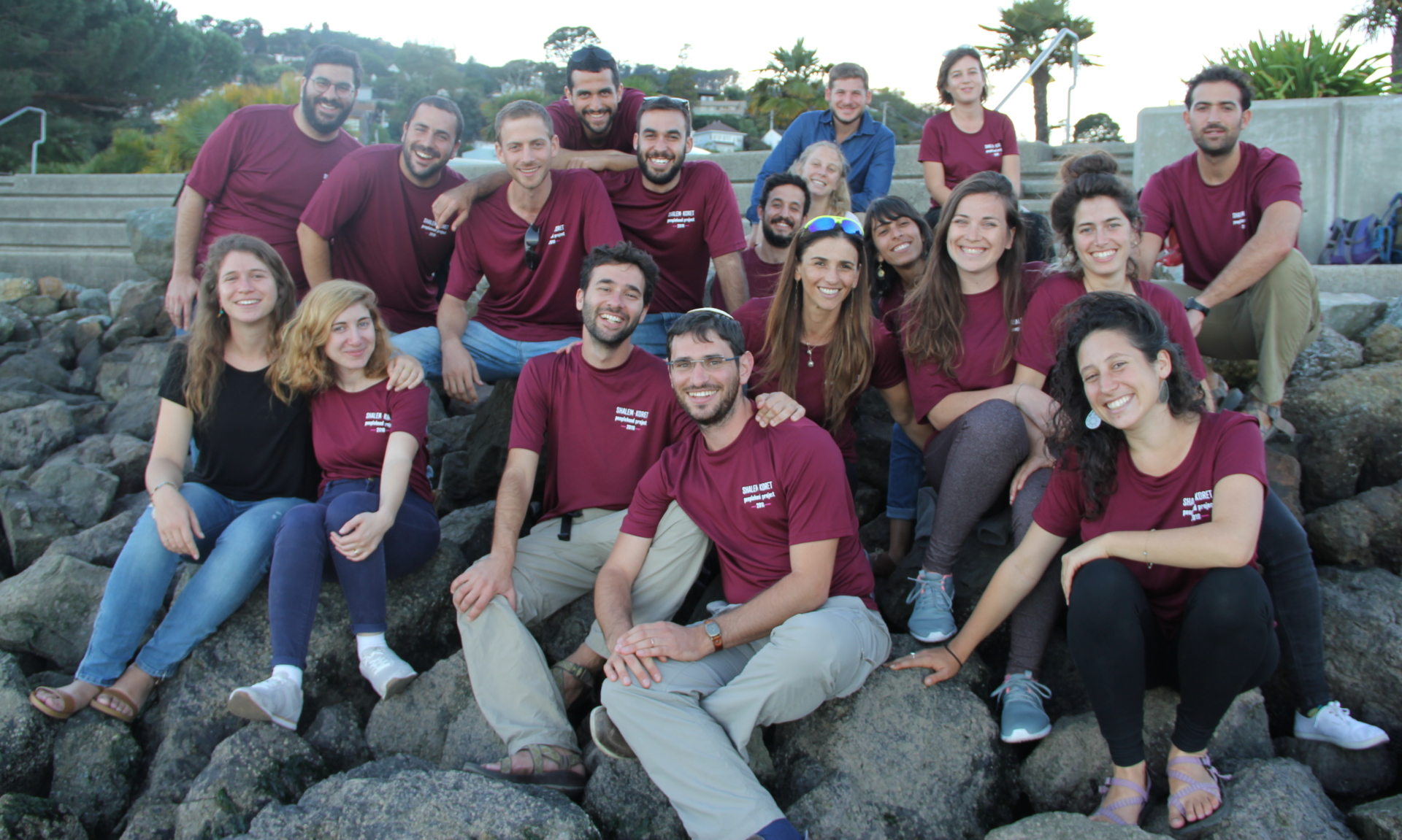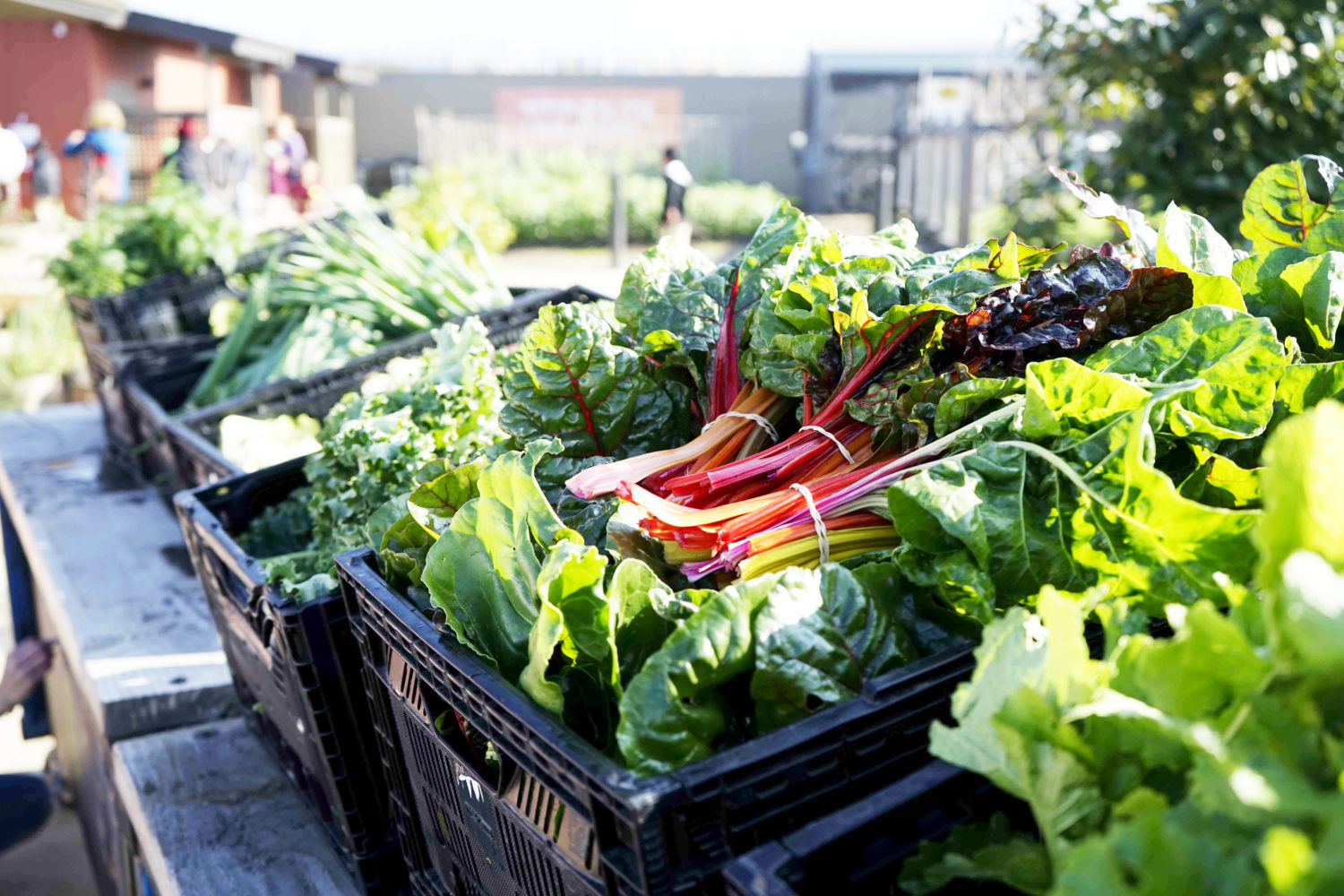Moishe House: Leading the way for next gen Jews to “do Jewish”
Moishe House: Leading the way for next gen Jews to “do Jewish”
The Koret Foundation enthusiastically supports various forms of Jewish engagement and outreach for our diverse Bay Area community. We are particularly interested in programs that help Jews in their 20s connect with their peers and create long term Jewish community participation. For many of them, the years between finishing college and starting families are a transition period. Young Jews are looking for meaning, purpose, and community, and opportunities for engagement that are grass roots, self-generated, and non-institutional resonate with them. Moishe House exemplifies this approach.
Moishe House began in Oakland, in 2006, when four Jewish 20-somethings who were sharing a house decided to extend an invitation to everyone they knew to join them for Shabbat dinner. Among the 73 guests that evening were a couple from across the Bay whose parting comment was, “Thank you so much. We live in San Francisco, and we want to build a community that looks and feels like this.” And that is the beauty of the Moishe House model: it’s replicable, scalable, and extremely engaging.
Start with an existing group of friends (usually four) who want to live together to build their own Jewish community. They look for a house they want to live in, making sure it can welcome 40 or 50 people for gatherings. Moishe House provides a rent subsidy, offsetting the cost of the extra space. The organization’s larger investment will come in the form of leadership development and training.
In eleven short years, Moishe House has grown from a start-up into a global leader in home-based, peer-led Jewish programming for young adults. The last time we counted, there were 105 Moishe Houses, in 26 countries. The organization’s alumni engagement mechanism, called Moishe House Without Walls (MHWOW), provides a way for former residents to continue their connection with Moishe House and its ethos.
Recipe for success: Each Moishe House has its own flavor
The Bay Area is home to eight Moishe House houses: two in the East Bay, one in Palo Alto, and five in San Francisco. By way of comparison, Los Angeles currently has six, and New York City (including Brooklyn) currently has seven.
Jordan Fruchtman is Moishe House’s chief program officer. He comments, “Each house takes on its own personality. When you walk in, it’s universally Moishe House, universally Jewish, but feels totally unlike any other Moishe House. This is, of course, the idea, for each house to feel like a home, a community, created by the friends who live there.” He adds, “In San Francisco, we have two houses in the Mission District, just a few blocks apart, and they feel completely different from each other.”
Jewish young adults who want to live in a Moishe House intuitively play to their own strengths, applying their creative passions and intellectual pursuits to Moishe House’s four programming pillars: Jewish learning, culture & holidays, repairing the world, and social activities. Each house schedules all four types of programming on a regular basis.
In 2016, when there were five Bay Area Moishe Houses, they created community on an impressive scale.
431
events
2,403
different people participated
7,144
total annual attendance
Some Moishe Houses keep kosher, including two in the Bay Area. Cooking classes and Shabbat dinners reflect the residents’ diverse practices: one house’s kosher chicken is another house’s Mexican Fiesta Shabbat barbeque is another house’s Moroccan Madness menu. Aliza Minkina, the northwestern regional manager for Moishe House, comments, “Every day, every single day, I respond to dramatically different requests, different ideas from Jewish young adults hoping to engage with Judaism in a different way. And we love to say ‘Yes’ to them. I work closely with residents to make sure their programs are on point.”
The organization’s Resident Support team keeps things on strategic course, overseeing Moishe House’s investment in each house in terms of programming consistency and mission alignment. And every three years, Moishe House arranges for an external evaluation, to measure community engagement and organizational sustainability. Participants’ responses to the most recent evaluation (“Moishe House: 2018 Evaluation Findings,” conducted by Informing Change) show the extent of Moishe House’s impact:
78% feel
Moishe House/MHWOW is a hub of Jewish life for young adults in their city.
52% participate
in new Jewish organizations or activities that they learned about through Moishe House.
81% view
themselves as a leader or role model in the Jewish community after participating in Moishe House/MHWOW. This is up from 32 percent prior to involvement with Moishe House.
Learning to lead together
Moishe House’s approach to leadership development leavens Jewish learning with autonomy and empowerment. Fruchtman elaborates, “Moishe House provides a platform for the thousands of young adults who are, or want to be, building Jewish community for their peers. We support their desire to connect with others and to gain the skills to feel comfortable to lead at Moishe House and beyond. Many Moishe House residents tell us that this is the first time they have ever felt ‘allowed’ to be a leader in the Jewish world.”
In 2016, the annual North American training conference (a.k.a. NattyCon) brought together 176 Moishe House residents from across the U.S. and Canada. (All residents are expected to attend, and their travel expenses are covered by Moishe House.) To complement sessions conducted by professional educators, experts, and Moishe House staff, over 50 percent of sessions are peer-led. The 2017 NattyCon had an even larger attendance, 195 residents plus 40 MHWOW hosts, and a broader scope of training.
Expanding horizons at Jewish learning retreats
Every month, the calendar offers at least one weekend or three-day retreat somewhere around the country (as well as abroad). Each retreat has a theme, and the goal is to educate and inspire Moishe House residents to design and lead Jewish programming that will engage their peers. Retreat activities are led by Jewish educators and by Moishe House staff. Attendees are a mix of residents (usually about 50 percent), local friends of Moishe House, members of the national and international Moishe House community, alumni, and MHWOW hosts.
In 2017, the Bay Area Shabbat & Creative Arts Retreat held at Camp Newman explored using theatre and the visual arts to celebrate Shabbat. Thirty-five young adults—some of whom knew none of the other attendees, and some of whom wouldn’t normally choose to perform in front of a group—listened and learned, bonded and collaborated, rehearsed and came together for a joyous open mic-art show presentation. They left the retreat with expanded peer networks and new modalities in their Shabbat repertoires. Immersive experiences such as these develop confidence and other leadership skills that will serve residents well not only at their Moishe Houses but also in their broader Jewish communities.
Building Jewish community through global service
In 2017, Moishe House began an informal partnership with two other nonprofits, Repair the World and Olam (Hebrew for “world”), to channel the interests of the Moishe House community regarding global Jewish service. As Fruchtman reflects, “Ultimately, what would be the point of all the Jewish ritual and learning and gathering, if not to work together to make the world more just and more balanced? Engaging in social justice and community service is the quickest and deepest way to form meaningful connections that are the foundation of Jewish community.” He adds, “Moishe House organically creates a global network of Jewish community builders who can share resources; laugh, collaborate, and commiserate together; and, most importantly, know that their work on a local scale contributes to Jewish peoplehood as a whole.”
David Cygielman, founder and CEO of Moishe House, chimes in: “Moishe Houses have done some incredible programs and projects in their local communities—in New Orleans after Hurricane Katrina, for example. Organizationally, we are encouraging Moishe House residents to develop longer-term relationships within their communities, rather than doing one-off service events. The key will be that residents feel they have the ownership of the service experience.”
David Cygielman is quick to acknowledge the Bay Area’s role in the organization’s remarkable growth: “I don’t think Moishe House would have begun without the creative energy of the Bay Area. The first house didn’t start as a Moishe House per se—it was just a Shabbat dinner for a group of people who had been counselors and campers at Camp Tawonga. It was their vision that inspired us.”
Related links
Read more
Jewish Peoplehood, U.S.-Israel Bridge Building




